The first Bulgarian research expedition to Antarctica took place in the spring of 1988, marking the beginning of a series of scientific studies by local researchers on the icy continent. ''These are the most extreme conditions in which a person can be placed on the planet", contends Professor Christo Pimpirev, a geologist and long-time leader of the Bulgarian polar expeditions. Christo Pimpirev is also the founding chairman of the Bulgarian Antarctic Institute.
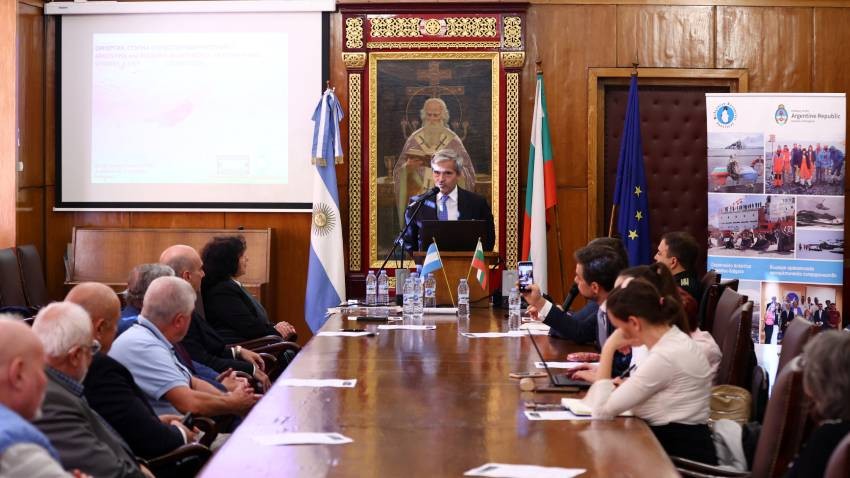
In the harsh living conditions, where difficulties are commonplace, the work of researchers would be almost impossible without close and friendly cooperation between the bases of different countries. Argentina is a country that has been present in Antarctica for more than 120 years and has permanent bases on the continent. The close cooperation between the two countries was highlighted at the conference "Argentina and Bulgaria in Antarctica: Friendship and Synergy, a Step Beyond Cooperation", organized at the Sofia University "St. Kliment Ohridski''. The conference was hosted by Rear Admiral Marcelo Tarapow, President of Argentina’s Antarctic Academy. Captain 2nd Rank Nikolay Danailov and Professor Neshо Chipеv, an expert in ecosystems and biodiversity, represented Bulgaria at the event.
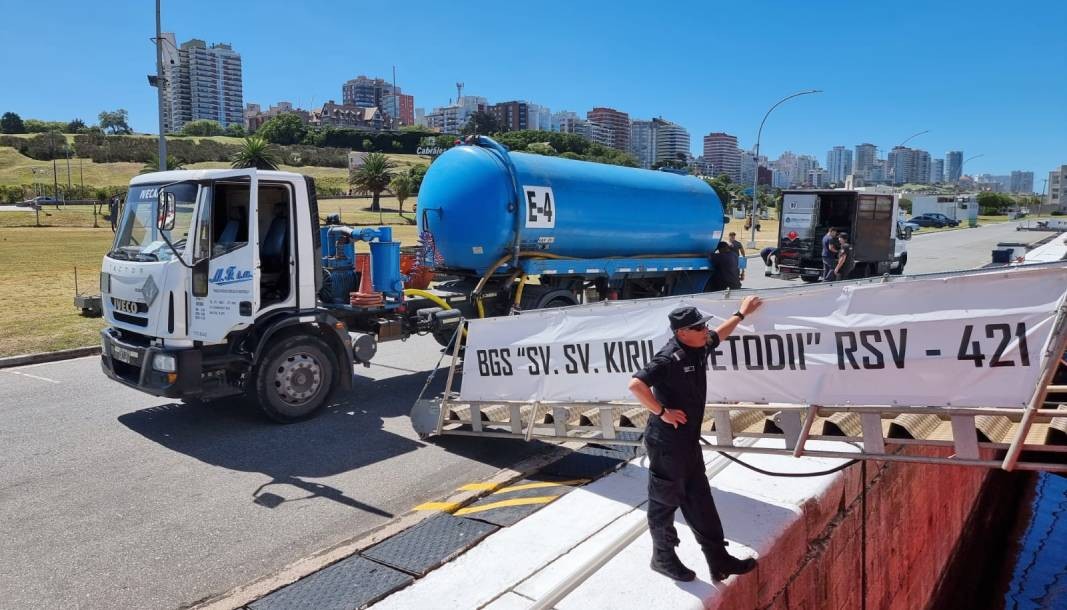
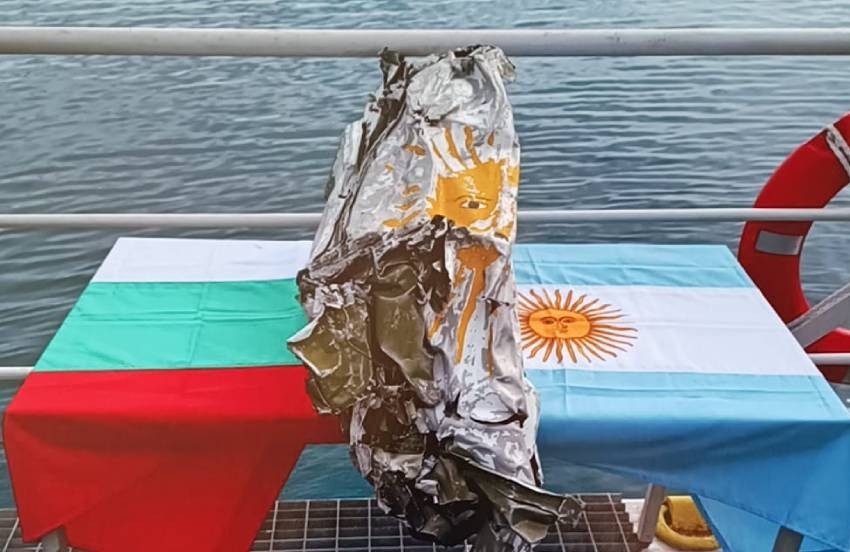
In an interview with Radio Bulgaria, Rear Admiral Tarapow highlighted the fruitful cooperation between Bulgaria and Argentina on the icy continent.
''Bulgaria works excellently in Antarctica, and the relations between the Bulgarian Antarctic Institute and Argentina’s Antarctic Academy have been very close for many years. I first visited the Bulgarian base in 1998. Since then, I have maintained friendships with your scientists and the people involved in the program. For instance, I know Professor Christo Pimpirev for more than 10 years. We collaborate all the time. Whenever we need something, we just call each other’’.
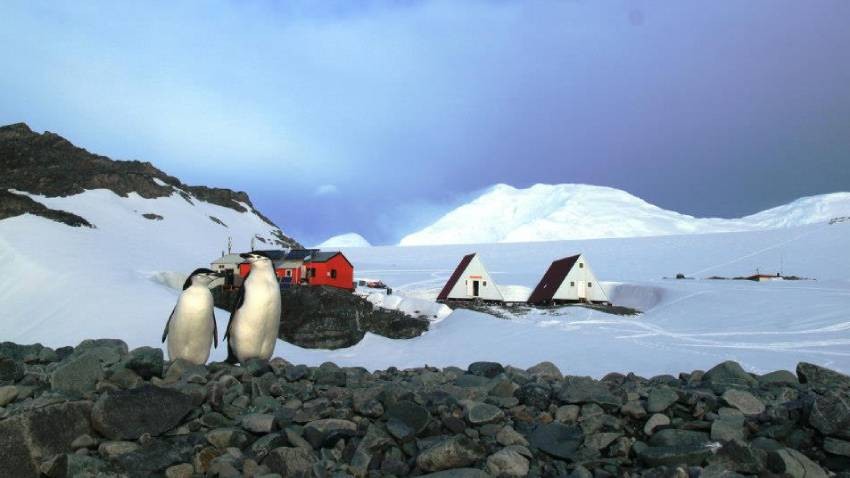
Antarctica is a magical place that captivates the interest of scientists and many tourists. What are the risks to this fragile corner of the Earth?
"The tourist flow to Antarctica grows every year. There was only a decline during the coronavirus pandemic. Between 50,000 and 70,000 people visit the continent every year. This is a significant number, as Antarctica is visited in the summer when there is no ice in the sea and travel can be done safely. The international organization responsible for the safety and preservation of the icy continent from human influence has already prohibited tourists from catching penguins and taking photos with them. Up to 100 people can disembark on the shore at a time, and there must be a guide for every 20 of them. Before going ashore, their clothes are cleaned with a vacuum cleaner to prevent the transfer of seeds, and their boots are washed. The same procedure is repeated when they leave."
What difficulties might an ordinary person encounter in Antarctica?
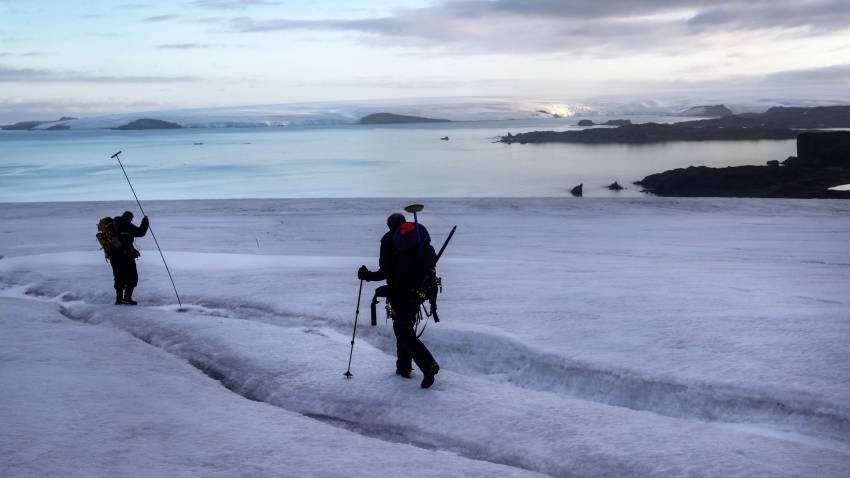
''Apart from the natural conditions, the cold and the wind, we should mention the remoteness. This is particularly felt when someone has to live there for many days in a row. The Bulgarian base opens in October-November and closes in February-March. However, Argentina has seven bases where people live year-round. This remoteness requires preparation, especially mental preparation, and it has to be quite serious. One is there alone, without family. You can't take a plane and go home until the next year. The biggest difficulty is loneliness and living in a place with harsh conditions."
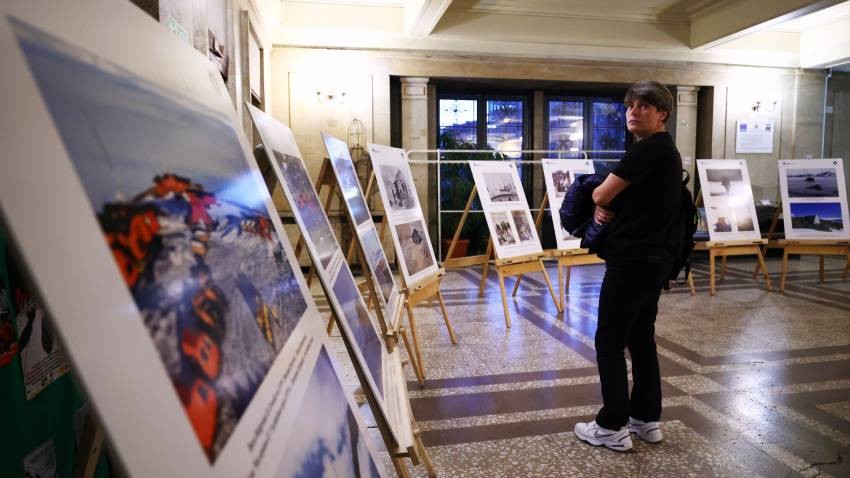 On the occasion of the conference, a photographic exhibition was arranged at the University of Sofia with photographs from the two Antarctic bases and archival materials from newspapers and magazines telling about the work of the Ice Continent now and in the past.
On the occasion of the conference, a photographic exhibition was arranged at the University of Sofia with photographs from the two Antarctic bases and archival materials from newspapers and magazines telling about the work of the Ice Continent now and in the past.
See also:
Translated and published by Kostadin AtanasovThe international wine festival "Bolgrad Wine Fest" is opening today in the unofficial capital of ethnic Bulgarians in Ukraine - Bolgrad. The two-day event will be held at the Center for Culture and Recreation. For the first time, within the..
The 33rd Bulgarian polar expedition is heading to Antarctica to continue its scientific research in cooperation with scientists from different countries. For the first time, travelers from two Balkan countries - Greece and Montenegro, as well as from..
The program of the Orthodox Book Week offers meetings with authors, publishers and translators of Orthodox books from the last few years. The event is held until November 10 at the ''St. Procopius of Varna'' Church, with meetings taking place every..
The traditional Bulgarian Christmas picnic, organized by the Bulgarian Cultural and Social Association "Rodina - Sydney" and the Bulgarian School..

+359 2 9336 661
